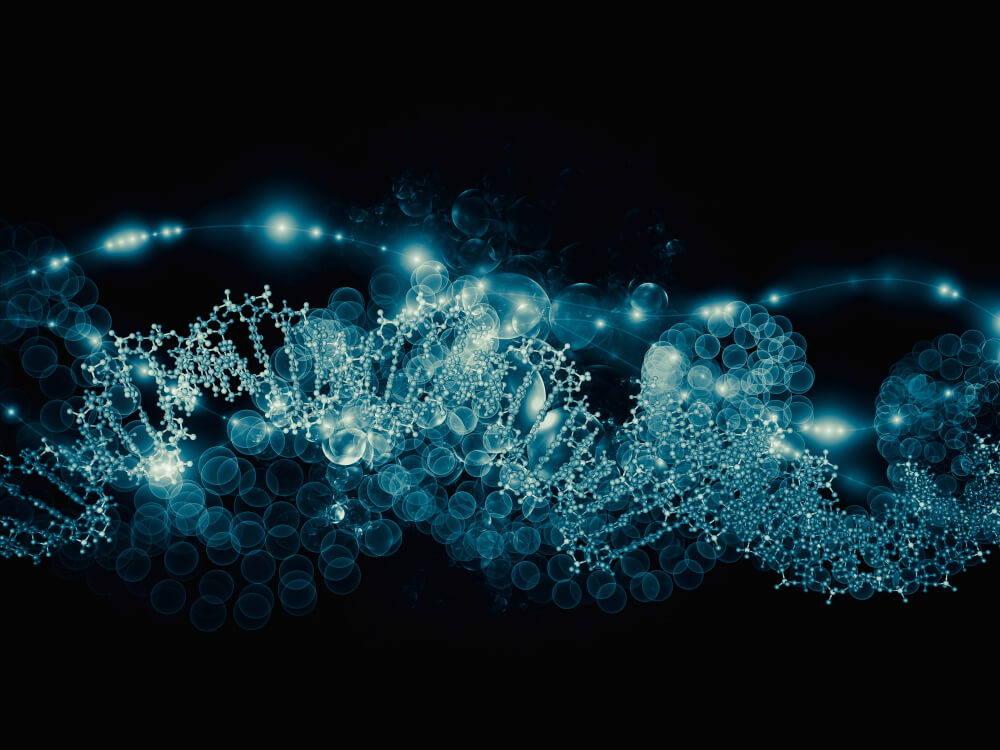SUMMARY: Mutations are changes in the DNA-coded instructions that control how cells function. Some mutations are associated with the development of cancer and other diseases, while others have little or no effect on health.
A mutation is a change in the sequence of DNA units, which are like the letters of the alphabet, that make up the genetic instructions that determine a cell’s structure and function. A mutation in a gene could be compared to a simple misspelling of a word by a single letter, or a duplication or deletion of many words or entire paragraphs.
While “mutation” is commonly used, many geneticists are adopting the terms “variation” or “variant” to refer to DNA changes, as these words have a less negative connotation. Variants may be normal alterations in the DNA code; they can also be termed “likely pathogenic” if they are suspected of having a harmful effect or “pathogenic” if they are definitely harmful.
The instructions encoded in a gene by the sequence of the four chemical units — a, c, t, and g — are used by the cell to make proteins to build and operate the body. A gene mutation can mean that the cell will not make a protein the body needs. A mutation can also cause the cell to make a defective protein.
Mutations are often caused by random errors when the DNA sequence in the cell’s nucleus is duplicated during cell division. They can also be caused by exposure to DNA-damaging agents such as radiation or chemicals.

Germ line mutations are DNA changes that are present in all the cells of the body because the egg or sperm that created the individual contained the mutation. Germ line mutations can be passed down to the individual’s offspring because they are present in the reproductive cells of the individual.
By contrast, mutations that don’t affect reproductive cells in the germline are known as “somatic” mutations. Somatic mutations occur at some point during the person’s lifetime and are only found in certain cells.
What is the link between gene mutations and cancer?
Many mutations have been linked to the development of cancer. Certain inherited mutations create a higher-than-average susceptibility to the development of tumors. For example:
- Mutated BRCA1 and BRCA2 genes increase the risk of breast and ovarian and some other cancers, including pancreatic and prostate.
- An inherited mutation in the TP53 tumor suppressor gene causes a rare familial cancer predisposition known as Li-Fraumeni syndrome. Individuals who inherit this mutation are at extremely high risk of multiple cancers, some rare and some common, and which often occur at a younger age than is typical.
- An inherited mutation in one of several DNA repair genes causes Lynch syndrome or hereditary non-polyposis colon cancer (HNPCC) . This mutation causes a very high lifetime risk of colorectal cancer and uterine cancer (in women).
Most cancers do not result from inherited risk mutations. A tumor typically develops when a somatic mutation in one or more normal cells disrupts the mechanisms that allow cells to divide and grow only when they are needed. For example, a breast or colon or lung cell could acquire a mutation and that cell then goes on to divide uncontrollably and form a tumor. There are several hundred genes involved in regulating cell growth and division and which, when mutated, can start a cell on the road to malignancy.
While germ line or inherited TP53 mutations are rare, they the most frequent finding in tumors or somatic mutations. Another common cancer-causing gene is HER2: When too many copies of this gene are present, extra HER2 protein is made, causing breast cells to grow and divide in an uncontrolled way. Another frequently mutated cancer gene is RAS — actually a family of related genes. In fact, mutated RAS genes are found in an estimated 30 percent of a wide variety of human tumors.
Mutations may be harmful, causing or increasing susceptibility to thousands of disorders — but in certain cases, they can be beneficial. Over the course of human existence, mutations have provided variation needed for evolution. Many variants or changes in DNA are neither harmful not beneficial.
About the Medical Reviewer

Dr. Rana received her MD from the Robert Wood Johnson Medical School at the University of Medicine and Dentistry of New Jersey in 2007. She completed her residency in internal medicine and her fellowship in genetics and genomic sciences at the Mount Sinai School of Medicine. She received her MPH from Harvard T.H. Chan School of Public Health in 2020. Dr. Rana joined the Dana-Farber Cancer Institute in 2012.

How can insurance companies deny payment for colonoscopies a patient with a lynch syndrome mutation has? Even as a Preventative screening, with no cancer diagnosis at all, yet denied coverage based on “monitoring a known condition”.
Hi Ann,
Thank you for reading. We would suggest you get in touch with your treating physician about this question. If you need more information on Lynch syndrome or would like to make an appointment with us, please visit: https://www.dana-farber.org/cancer-genetics-and-prevention/syndromes-genes-and-programs/lynch-syndrome-center/
Best,
DFCI